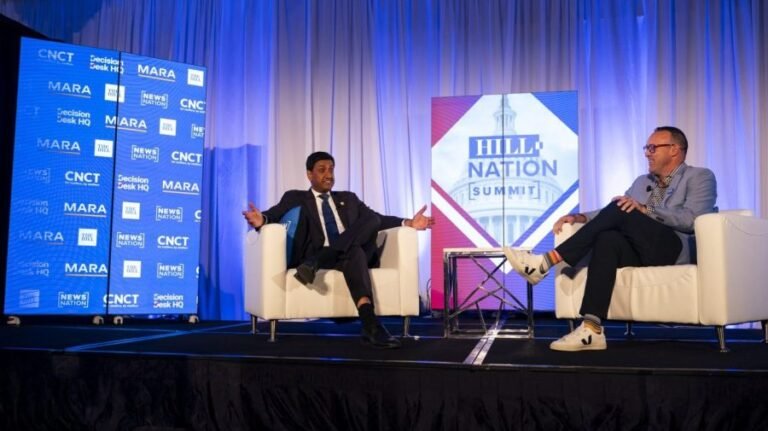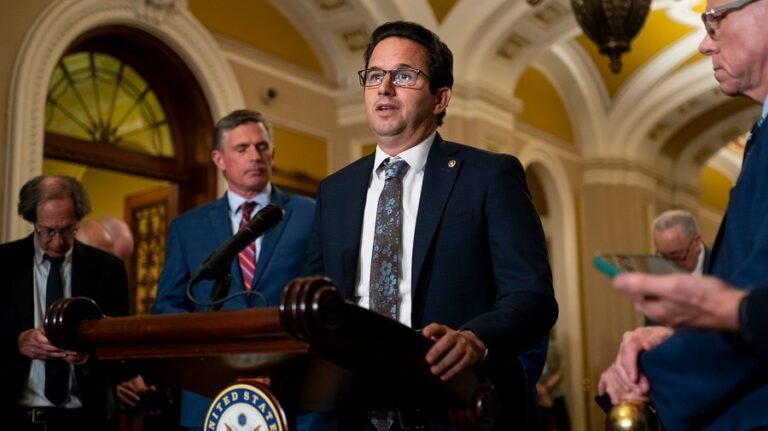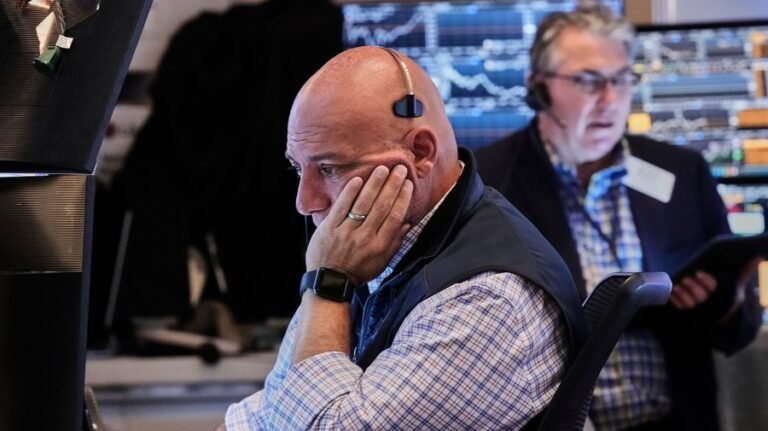
An appeals court panel took up President Trump’s bid to fight his hush money criminal conviction in federal court Wednesday, acknowledging the extraordinary prosecution coupled with the Supreme Court’s presidential immunity decision breaks new ground.
The three-judge panel on the U.S. Court of Appeals for the 2nd Circuit must decide whether to open a path for Trump to attempt to throw out his conviction on 34 counts of falsifying business records by letting him advance his case in a federal forum, instead of New York state courts.
Trump’s gambit was already rejected once, and now he has latched onto the Supreme Court’s decision to try again.
“It seems to me that we got a very big case that created a whole new world of presidential immunity,” said Judge Myrna Pérez, an appointee of former President Biden, “and that the boundaries are not clear at this point.”
Trump argues he is entitled to a federal forum to make his case that the jury’s guilty verdict must be tossed in light of the Supreme Court’s subsequent ruling granting broad criminal immunity to former presidents.
The president’s lawyers concede he is not immune from the 34 felonies themselves, but they contend that prosecutors improperly included immunized evidence during the trial, like a White House aide’s testimony and Trump’s social media posts.
“The district attorney holds the keys in his hand,” Trump lawyer Jeffrey Wall said. “He doesn’t have to introduce any of this evidence.”
“Federal officers get prosecuted all the time for things that have nothing to do with their job, but if a state or local attorney says, ‘We’re going to put into evidence things that have to do with the way you do your job,’ then they’ve triggered a uniquely federal interest,” he continued.
The appeals panel is not expected to conclusively resolve in their ruling how immunity applies. At this stage, Trump just needs to show it is a “colorable” — meaning plausible — defense.
But it remains unclear following the oral argument whether the panel was convinced he clears even that lower standard.
“Was there another case in which an evidentiary immunity related to a federal, or is claimed as a federal defense, has served as a basis for removal?” asked Judge Susan Carney, an appointee of former President Obama.
Wall acknowledged the situation arises “very rarely.”
But he argued “the point” of federal officer removal is that they’re entitled to a federal forum. If that’s true for the average federal officer, it must be true for the president and his “anomalous, one-of-its-kind prosecution,” he said.
Trump must clear other roadblocks, too, to emerge successful.
He must show the hush money prosecution relates to an act “under color” of his presidency, a potential complication given that his 34 charges stem from reimbursements for a hush money payment made before his presidency.
“Why wouldn’t that prong be understood to focus on the charged conduct and whether the charges themselves are for the relating to official acts?” Pérez pressed Wall at one point.
And regardless, federal law requires Trump to prove that he has “good cause” to pursue his removal effort since it came after his trial. Trump stresses the Supreme Court immunity decision didn’t land until he was convicted.
Steven Wu, appellate chief at the Manhattan District Attorney’s office, argued that Trump waited two months after the Supreme Court’s immunity decision to mount the effort again.
“It is worse, not better, for questions of resolving disputes between federal and state courts that they first went to the state court fully briefed — not just immunity, but also recusal and sought a stay of the sentence,” Wu said. “He did so in a deliberate attempt to get state court relief there, and only then came to this court, or rather to the district court, to seek federal court relief.”
Judge Raymond Lohier, an appointee of Obama, asked then whether even if the panel agreed with Trump that the immunity decision rendered the case removable, there would be no good cause because of that delay.
“That’s correct,” Wu said.
Trump’s effort is his second such bid. He dropped the first effort after a federal judge before the trial rejected that the hush money case was sufficiently connected to his role as president.
The new bid is backed by his Justice Department, which filed a friend-of-the-court brief in the case after he returned to the White House.
Though no clear direction emerged from the argument, all three judges acknowledged the uniqueness of the case.
“I think you might agree that this is a pretty extraordinary, highly unusual case,” Lohier told Wu. “Do you agree with that?”
“In some respects, yes, but in some respects, no,” Wu replied. “And what I’ll say is this: yes, it’s unusual for this criminal case to be taking place. The defendant is an unusual defendant.
“But it is very far from unusual for a criminal defendant, after being sentenced, to claim, one, that an intervening court decision favors his appeal, and two, that there were trial errors that he would like to object to,” he said. “Those are commonplace grounds.”


